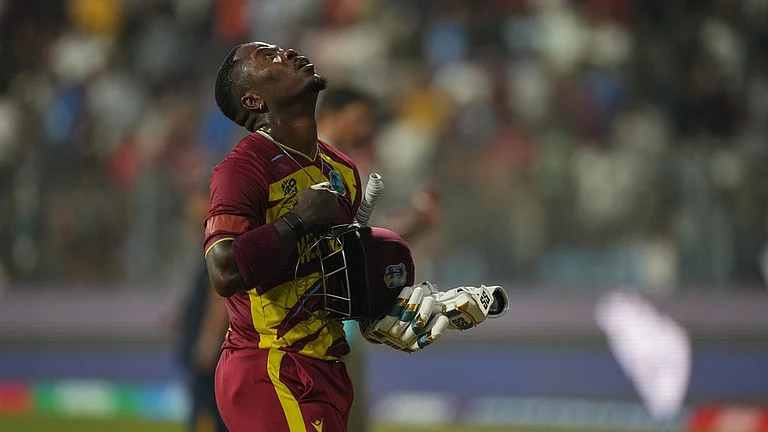Ten young men are traveling on a boat along Mumbai's coast. Their faces grim, they pray and focus on the approaching shore. As they alight, they board separate taxis taking them to various locations in the metropolis on the Arabian Sea. More than locations, however, these are targets. For the men are about to carry out the terrorist rampage that will forever be known as the 26/11 attacks. These are the opening scenes of the new film, Hotel Mumbai, from Australian director Anthony Maras, about that incident, particularly the siege from within of the Taj Mahal Palace Hotel.
It isn’t quite a surprise for that luxurious establishment to be at the centre of the movie. Much of the Western documentation of the attack has been related to the narratives of the survivors, including the guests and staff. Its cinematic scope is magnified by the fact that among the abiding images of that coordinated assault by a team trained in Pakistan, was that of dark smoke billowing into the blue sky, as the terrorists set sections of the magnificent building on fire. Also, unlike most of the other targets, the action here unfolded not just over minutes, but hours stretching into days.
The device Maras employs is that of viewing the events from the perspective of the well-heeled guests, mostly Western, even a Russian businessman with a background in the erstwhile Soviet special forces. The other groups are the staff, ranging from real-life chef Hemant Oberoi (Anupam Kher) to a waiter Arjun (Dev Patel), who are a composite of multiple employees of the Taj. The latter often acted heroically to save the lives of several guests, and they deserve a tribute in the form of this film.
Maras doesn't skim over the brutality: It's depicted in gory detail, as the marauders go from the hotel’s reception to the floors above, door-to-door, along corridors, mercilessly gunning down those unfortunate enough to appear in their sight. He also makes lame attempts at humanising the terrorists; a son calling home and speaking to his father from a suite telephone, two comrades joshing each other, others gawping at the majesty of the Taj's interiors. But those human facades shatter in the hail of bullets they strafe the hotel with.
Kher as chef Oberoi delivers a dominating performance, as always. Patel is credible as the young Sikh waiter, with a young family to care for, escorting his charges to sanctuaries during those hours of peril. The dialogue that defines the narrative is of the phone conversations between the terrorists and their handler, directing them on this act of jihad, much of it in Punjabi.
But if you were to watch the film without prior knowledge of this monstrous attack, one that gave the world the phrase Mumbai-style as a marker of simultaneous strikes on multiple targets, you would have no idea that the terrorists arrived from Pakistan, that they were foot soldiers of the Lashkar-e-Taiba, and their trainers and handlers were affiliated to the ISI. Well, those details didn't emerge while the attacks were in progress during those terrible days in November 2008, but the information could have been part of the explanatory notes at the film's end. Instead, the placards state blandly that the handlers have never been apprehended.
This film may well work for a Western audience, for which it appears to be crafted, but if it's released in India, this potent, emotive movie will suffer for its screenplay's lack of such significant basic facts informing the purpose of the very attacks upon which it is structured.


























